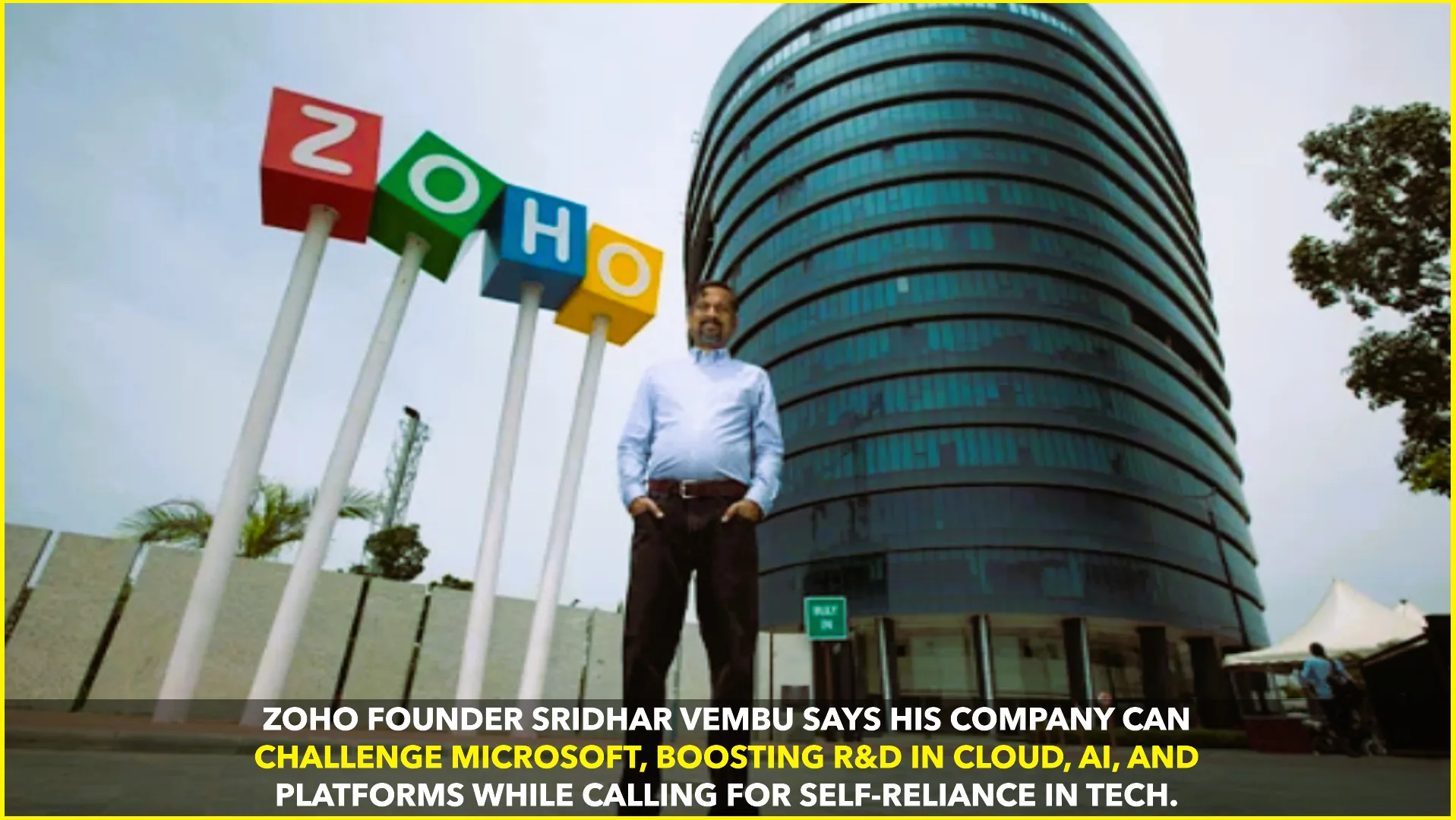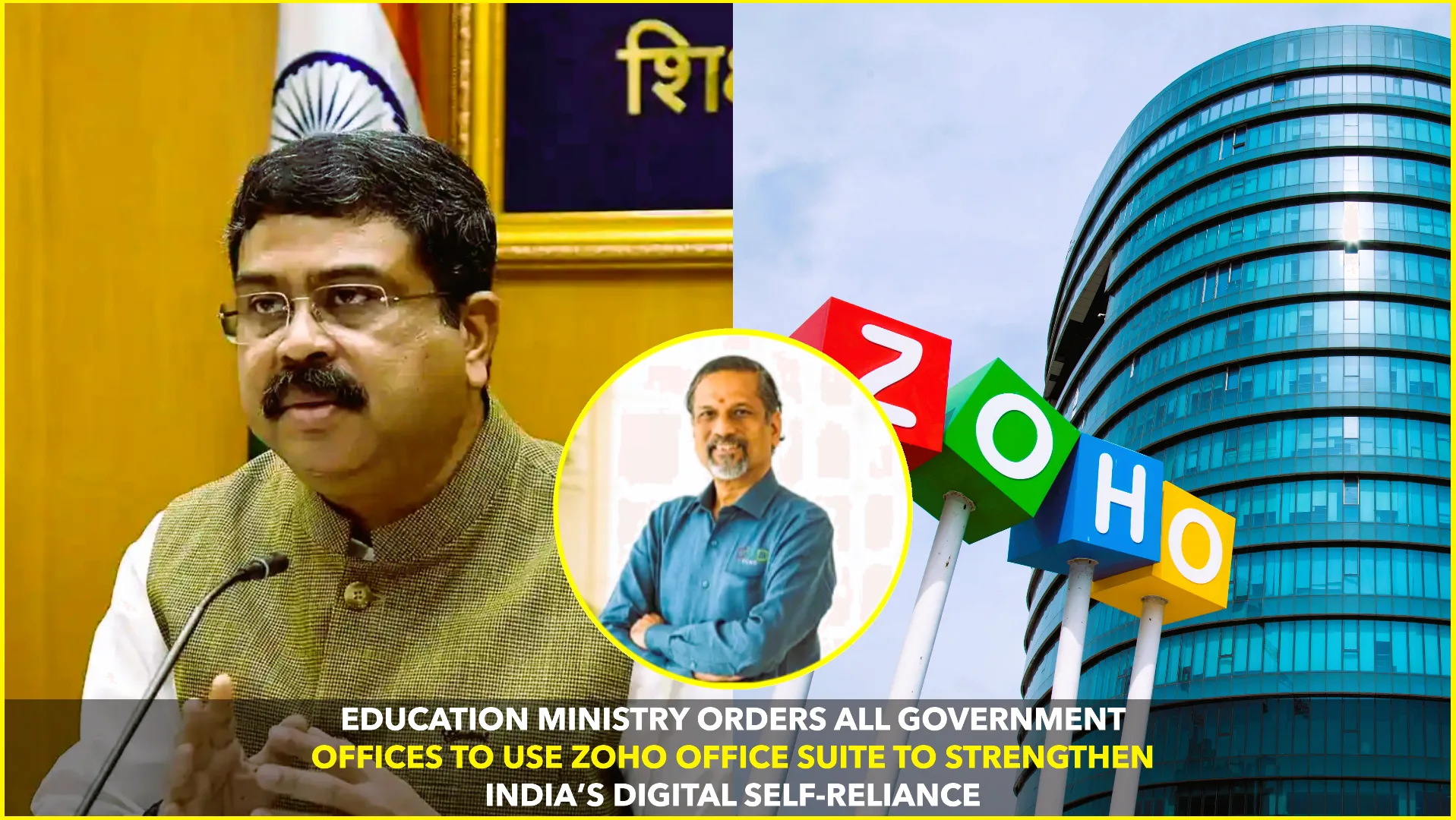Sridhar Vembu, the founder and CEO of Zoho Corporation, has set an ambitious tone for the future of the Indian software-as-a-service (SaaS) giant. In a recent post on X (formerly Twitter), Vembu declared that Zoho is now positioned as the only company in the world capable of taking on Microsoft in terms of the breadth and depth of its product suite.
“We are the only company in the world that can take on Microsoft in the breadth and depth of the product suite,” Vembu wrote, adding that Zoho’s offerings provide users with a “vastly superior experience.” His remarks come at a time when India is increasingly pushing for technological self-reliance and promoting homegrown innovations to reduce dependence on global tech monopolies.
Zoho’s Expanding Product Universe
Zoho, founded in 1996, has built a reputation as one of India’s most successful SaaS companies with a wide array of products ranging from CRM and email to advanced AI-driven tools. Unlike most startups that rely heavily on external funding, Zoho has grown organically, maintaining profitability and independence throughout its journey.
Today, the company offers more than 55 applications spanning multiple categories such as productivity, business process management, finance, HR, and IT management. Through its IT management division, ManageEngine, Zoho has also established a strong global footprint, catering to enterprises across 190 countries.
The visual Vembu shared alongside his post highlighted Zoho’s growth trajectory since 2002, underscoring the company’s steady expansion and resilience against global competition.
Doubling Down on R&D
A central part of Zoho’s strategy to compete with tech giants lies in its commitment to research and development. According to Vembu, the company is doubling its investment in R&D across cloud infrastructure, artificial intelligence, platforms, and applications.
This move reflects Zoho’s broader ambition to not only match but surpass Microsoft’s enterprise ecosystem in innovation. “We are building the foundations of tomorrow’s technology with an eye on long-term independence,” Vembu stated in his post.
Zoho has also been at the forefront of integrating AI into its suite of applications. Its AI assistant, Zia, has been a significant differentiator, while its focus on privacy-first solutions has resonated with businesses looking for alternatives to U.S.-based tech firms.
A Push Toward Self-Reliance
Vembu’s comments also align with the larger national narrative of self-reliance being promoted by the Indian government. Prime Minister Narendra Modi recently urged Indians to embrace local products, warning that dependence on other nations was India’s “biggest enemy.” Modi’s call for “Atmanirbhar Bharat” (self-reliant India) has become a recurring theme in policy, particularly in the technology sector.
By positioning Zoho as a global competitor to Microsoft, Vembu is reinforcing this vision of India as a hub of innovation and technological strength. His company’s global success story already serves as an example of how Indian firms can rise to challenge established giants in Silicon Valley.
Microsoft in the Crosshairs
Microsoft has long dominated the enterprise software landscape with products such as Office 365, Teams, Azure, and Dynamics. However, Zoho’s integrated suite of applications, offered at competitive prices, has been steadily gaining traction among small and medium businesses as well as large enterprises.
Vembu’s claim of offering a broader suite is not without merit. While Microsoft remains strong in core productivity tools, Zoho’s comprehensive offerings—ranging from marketing automation to finance and IT service management—cover a wider ground for end-to-end digital transformation.
Global Implications
Zoho’s positioning as a Microsoft challenger could have significant implications for the SaaS industry. With its strong presence in emerging markets and emphasis on affordable, all-in-one solutions, the company is well-placed to disrupt traditional licensing models and subscription-heavy ecosystems.
Moreover, Zoho’s approach of running development centers in rural India and investing heavily in local talent also sets it apart. This model not only keeps costs under control but also contributes to India’s broader economic goals of inclusive growth.
Looking Ahead
As Zoho doubles down on its innovation roadmap, the global SaaS landscape may witness a new wave of competition. While Microsoft’s dominance will not be easily shaken, Zoho’s bold claims and consistent growth trajectory point to a rising challenger from India.
For Indian tech, Vembu’s statement marks more than just corporate ambition—it represents a larger vision of self-reliance, innovation, and global competitiveness. Whether Zoho can truly rival Microsoft remains to be seen, but one thing is clear: the company has firmly established itself as a force to watch in the global enterprise software arena.
Source: Economic Times










